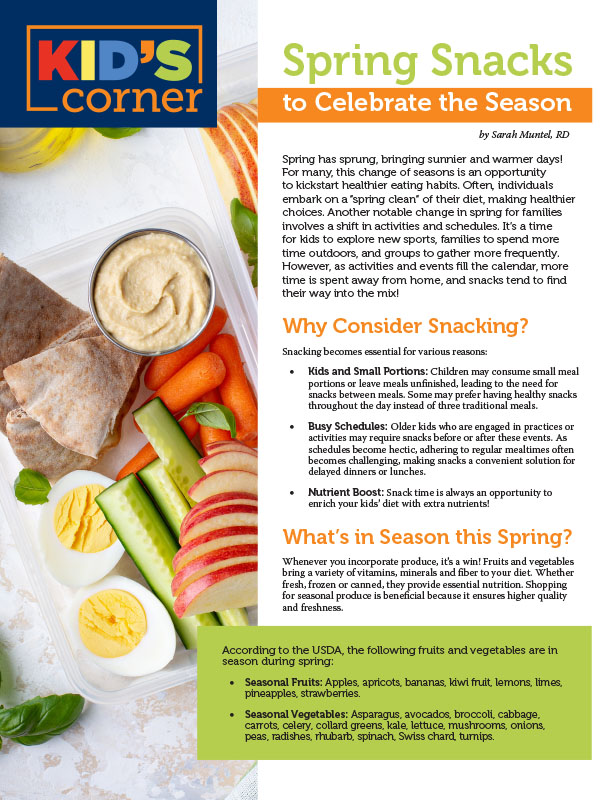Healthy Bodies, Healthy Minds & a Happy Child


by Alicia Tucker, MD, FAAP
Winter 2022
We often describe the feeling kids have when they believe in themselves and feel confident, liked, accepted and proud as “good self-esteem.” Other times, they may feel down on themselves, less confident, or doubt they can do things. We call this “low self-esteem.” While every child falls in different parts of this “self-esteem spectrum,” my hope is for all children to feel confident, proud and accepted for who they are.
Weight and Self-esteem
As a pediatrician who specializes in weight management, I, unfortunately, encounter children and teens with low self-esteem on a regular basis. By the time I meet a lot of my patients, they often feel discouraged about their bodies. Reaching and maintaining a healthy weight is an important part of our health, but it is one piece of a very complicated puzzle.
Physical and emotional health cannot be separated. When talking about a sensitive topic like weight, we need to balance the two. I stress to both my patients and their families that our goal will be to focus on health, NOT weight. Even in cases where the weight may have a direct impact on their health, such as with type 2 diabetes, I will discuss weight as another number to monitor at the doctor’s office just like blood pressure. The family’s job at home is not to measure weight, but to focus on small, attainable goals that can be worked toward for long-term health.
Regardless of your child’s weight or health status, helping them develop a healthy relationship with food, exercise and their own body is an important parenting job. I want to focus on ways you can talk to your family about healthy eating and exercise while building self-esteem in the process.
Words Matter!
A lot of parents I see both at work and in my personal life do a great job telling their children to love their bodies. However, in the next sentence, they will make a negative comment about their own body by saying things like “I feel fat” or “I have to diet after eating this cake.”
Dieting and body shaming are so common in our culture that many people are not even aware they are saying anything negative at all. But these words can be harmful, even if they are just being overheard by the children in your life. A study in 2010 published in the Journal of Adolescent Health showed that the more parents talked about their weight and dieting, the more likely their children were to feel unhappy with their own bodies. It’s important to censor what we say around children about weight, especially if it’s negative, because that is something that can have a personal effect on them.
Start Early with Healthy Eating
Talk with your child about balancing healthy foods and drinks. From an early age, make sure that water is served regularly instead of sugary drinks. If you serve sugary drinks, which includes 100% fruit juice and sports drinks, try to keep them in moderation with no more than eight ounces per day.
Additionally, try to ensure that your child is eating a proper amount of nutrients and calories. Every child’s nutrition needs vary but try to make sure they are getting enough fruits, vegetables and protein each day.
Have a Meal Together
Whenever possible, have a meal together as a family. Your child is more likely to try a variety of foods that include fruits and vegetables if they see everyone else eating them, too. Family meals not only slow us down when we’re eating so that we recognize when we’re getting full, but they are also a great way to reconnect after a busy day.
Let Your Child Be Full
Children are naturally very good at recognizing when they are full (with the exception of certain medical conditions) and you can help them listen to these hunger and fullness signals. If they are full, don’t make them clean their plate. Serving sizes will change as they grow, but you can use their hand as a guide for the portion size they need:
- A closed fist is a serving of fruit, vegetables, pasta, rice or cereal.
- A palm is about the serving size of meat.
- A thumb is the serving size of added fats like butter, mayo, peanut butter, etc.
As your kids get older, encourage them to come grocery shopping with you and help with cooking. When older children and teens feel more involved in the decision-making process, they feel more empowered to make their own healthy choices even when you are not there.
Don’t Make Food the Enemy
To protect kids and teens from disordered eating behaviors, it’s important to avoid shame and guilt around eating “unhealthy.” When food is viewed as the enemy, it can make kids feel bad about eating a certain food. Food is a basic pleasure in life, and it’s unfair to expect kids to turn down foods high in sugar and fats when they are offered. Let’s be honest, most adults struggle with this! We all have unhealthy foods sometimes, so it’s important to teach your children that treats like candy and chips are okay to have in moderation but should not be part of their daily eating habits. The best way to help them with this is to keep these foods out of the house or to have them occasionally in small portions.
Get Moving!
Preschool-age children should be physically active throughout the day and school-age children (6 – 17) should have at least 60 minutes of activity every day. This may sound like a lot, but it can be divided up into 15, 20, or 30-minute bursts of activity.
This is another area where being a role model is important. If your child sees you choose to go on a bike ride with them instead of watching television, it helps them learn that physical activity is a healthy part of life. I have certainly needed a rest after a long day at work too, so I don’t expect everyone to come home and start running on the treadmill. Any sort of movement, even taking a walk together, is helpful. I prefer to talk about “physical activity” instead of “exercise.” Exercise is planned, structured, repetitive movement to increase fitness. Physical activity is any movement that uses energy, and even that definition feels less stressful! Children should see being active as part of the whole family’s lifestyle instead of just something to do to lose weight.
Be Body Positive
Children and teens are already getting a lot of messages from their peers, social media and even well-meaning grandparents about their weight. Make sure the message they are getting at home is that healthy, strong bodies come in different shapes and sizes. Encourage positive thoughts about what our bodies can do, not how they look. Set rules around not using hurtful words or teasing about weight. Let your children know that they can also remind you not to use those words about yourself or someone on television. We have all grown up in this culture that normalizes dieting and commenting about others’ weight, so this can be a hard habit to break.
If your child is making negative comments about their appearance, check in with them about how they are feeling. Listen and then listen some more. Being aware of these emotions is the first step in dealing with them.
Conclusion
My hope is that all children can learn the importance of taking care of their bodies through a healthy balance of foods and activities. I strongly believe that there are ways to have this discussion at home in a way that builds self-esteem. A healthy body image comes from accepting your body, liking it and taking care of it. I can’t think of a better way to take care of your body than to nourish it and keep it strong.
About the Author:
Alicia Tucker, MD, FAAP, is an ABOM-certified practicing pediatrician with a focus on weight management at Children’s National Hospital in Washington, D.C. Dr. Tucker is also an assistant professor of pediatrics at the George Washington University’s College of Medicine where she participates in medical student education and research around the prevention and improved management of childhood obesity and diet-related chronic diseases.
by Sarah Muntel, RD Spring 2024 Spring has sprung, bringing sunnier and warmer days! For many, this…
Read Articleby Robyn Pashby, PhD Winter 2024 “No one is ever going to date you if you don’t…
Read Articleby Leslie M. Golden, MD, MPH, ABOM Diplomate Winter 2024 The journey to overcoming obesity is a…
Read Article








